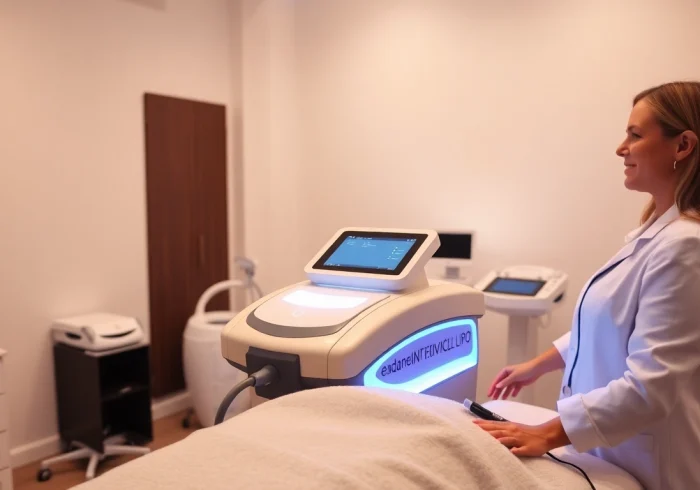Understanding the Importance of Checkups
Maintaining optimal oral health is a critical aspect of overall wellness, and one of the most effective ways to achieve this is through regular dental checkups. These visits not only ensure that your teeth and gums are in good condition but also serve as an essential preventive measure against more serious health issues. In this article, we will explore the fundamental role of dental checkups, outlining their benefits, what to expect, and how to ensure consistency in your oral health routine.
What Are Dental Checkups?
Dental checkups are comprehensive examinations conducted by a licensed dentist or dental hygienist, typically recommended every six months to a year. During these appointments, the dental professional assesses your oral health, checking for cavities, gum disease, and other dental issues. The checkup often includes a professional cleaning, which removes plaque and tartar buildup, polishing your teeth to make them shine.
The Benefits of Regular Dental Visits
The advantages of regular dental checkups extend beyond just having a bright smile. Here are several key benefits:
- Prevention: Regular visits can prevent the onset of serious dental problems, catching issues early when they’re more manageable and less costly to treat.
- Identification of Health Problems: Dentists can spot signs of systemic conditions such as diabetes and certain cancers during oral examinations.
- Professional Cleaning: Even the most diligent brushers and flossers can’t achieve the same cleanliness as a professional cleaning. This process helps prevent cavities and gum disease.
- Guidance on Oral Health: Your dentist can provide tailored advice based on your oral health history and lifestyle.
Who Should Get Regular Checkups?
Dental checkups are crucial for everyone, from infants to the elderly. It’s recommended that children have their first dental visit by their first birthday or within six months after their first tooth erupts. Adults, particularly those with existing dental issues, should not neglect their checkup schedule. Maintaining regular visits is essential for preventing long-term complications regardless of age.
What to Expect During Your Checkups
Understanding what happens during a dental checkup can help alleviate any anxiety you may have about the visit. Here’s a breakdown of the typical process:
The Dental Exam Process Explained
During your exam, the dentist will begin by reviewing your medical and dental history. You may also need to fill out a form, especially if it’s your first visit. The dentist will then conduct a visual inspection of your mouth, including checking your gums and the condition of your teeth. In some cases, additional tools might be used to evaluate any potential problems more thoroughly.
X-rays: An Essential Part of the Checkup
X-rays are a crucial tool in a dentist’s arsenal, allowing them to see what’s happening beneath the surface of your teeth and gums. While not every checkup will require X-rays, they can reveal cavities, bone loss, or other underlying issues that aren’t visible during the visual examination. Depending on your dental history, these images are typically taken every 1-2 years.
Common Procedures During Your Visit
In addition to examinations, several common procedures may be performed during your visit:
- Teeth Cleaning: Dental hygienists typically perform cleanings, which involve scraping off tartar and plaque buildup, flossing, and polishing the teeth.
- Fluoride Treatment: A fluoride treatment helps strengthen enamel and can be particularly beneficial for children and adults alike.
- Oral Cancer Screening: This visually checks the mouth for signs of oral cancer, an increasingly common concern.
Signs You Need to Schedule a Checkup
While regular checkups should be part of everyone’s routine, there are specific signs that may indicate it’s time to see your dentist sooner rather than later:
Recognizing Oral Health Issues
Pay attention to the following signs:
- Persistent bad breath that doesn’t improve with good oral hygiene.
- Gums that bleed when brushing or flossing.
- A toothache or sensitivity to temperature changes (hot or cold).
- Changes in the alignment of your teeth.
How Often Should You Schedule Checkups?
The standard recommendation is to see your dentist every six months. However, depending on your oral health status and risk factors, your dentist may suggest more frequent visits.
When to Seek Immediate Dental Care
If you experience severe pain, swelling, or other acute symptoms, it’s essential to seek immediate dental care. Ignoring significant issues can result in more severe health complications down the line.
Finding the Right Dentist for Your Checkups
Your relationship with your dentist should be based on trust and comfort. Finding a dentist suited to your needs is essential for maintaining oral health.
Qualities to Look for in a Dental Provider
When seeking a dentist, consider the following characteristics:
- Qualifications: Make sure they are board-certified and have appropriate professional training.
- Experience: Look for a dentist with a solid background, especially if you have specific dental needs.
- Patient-Centered Approach: A good dentist prioritizes communication and makes you feel comfortable during your visits.
Questions to Ask Your Dentist
When you meet a potential dentist, don’t hesitate to ask questions, such as:
- What is your approach to preventive care?
- How do you handle dental emergencies?
- What payment options do you provide?
Using Patient Reviews to Guide Your Choice
Online reviews can offer valuable insights into a dentist’s practice. Look for patterns in feedback regarding wait times, staff behavior, and the quality of care provided.
Staying Consistent with Dental Checkups
Making dental checkups a routine part of your life requires some planning and commitment. Here are strategies to help you stay consistent:
Creating a Family Dental Schedule
Consider scheduling checkups for all family members on the same day or within a close timeframe. This can help ensure regular attendance while making it easier to manage appointments.
Utilizing Technology to Remind You of Appointments
Most dental offices today use technology to send appointment reminders through text or email. Many individuals also find calendar apps helpful for scheduling and reminding them of upcoming visits.
Overcoming Fears and Anxieties Related to Dental Visits
Dental anxiety is common, but it shouldn’t prevent you from receiving necessary care. Discuss your fears with your dentist; they can often take extra steps to make your experience more comfortable. Techniques such as deep breathing and visualization can also help before and during your visit.



